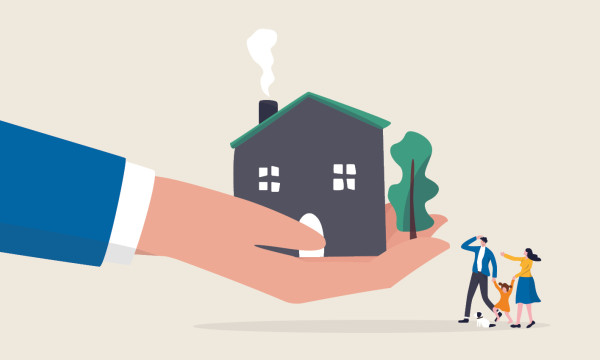Types of home loans

Buying a new home is exciting, and it’s one of the most important financial decisions you’ll ever make. There are many options to consider, and the amount of information can seem a bit overwhelming.
The good news is that you don’t have to have unlimited knowledge on the subject — that’s one of the roles your mortgage loan expert plays in the process. Together, you can find the loan that works best for you and your unique circumstances, and UBT is always right there to help. (We know a thing or two about buying a home.) However, it does help to be a bit familiar with the types of loans and some of the more common specialty loans. We’ll cover those here.
Types of loans
Every mortgage loan has a different set of criteria regarding the amount of money the lender will need as a down payment. Since that amount can vary widely, you want to make sure you’re getting the right home loan for your particular financial situation. (Again, that’s where your mortgage expert comes in.)
When deciding on which type of loan is best for you, you have the option of fixed-rate or adjustable-rate mortgage.
Fixed-rate conventional: Fixed-rate mortgages have a set interest rate for the entire length of the mortgage term, which can typically be between 10 and 30 years. The fixed-rate mortgage is the most common type of loan program. Because the interest rate remains constant for the life of the loan, your monthly payments for interest and principal never change. Property taxes and homeowners insurance may vary from year to year, but generally your monthly payments will be very stable.
Adjustable-rate mortgage (ARM): Adjustable-rate mortgages, also called variable-rate mortgages, have an interest rate that adjusts over time based on the market index. ARMs typically have a lower initial interest rate than fixed-rate mortgages, with monthly payments that may fluctuate during the term of the loan. If you’d like to dig in a little further, we have another helpful blog that will help you better understand these unique loans.
Jumbo loans: The maximum amount of a conforming loan is determined by the Federal Housing Finance Agency, or FHFA. A jumbo loan is a mortgage used to finance properties that exceed the conforming loan limit. The great news is you don’t have to know everything about home loans and limits; your trusted UBT home loan expert can help you determine if a jumbo loan is the right product for you.
Specialty home loans
A variety of specialty mortgage loan products are available. Below you’ll find a brief overview and some links to learn more. Visit with a Union Bank home loan expert to determine which is the best fit for you.
Federal Housing Administration (FHA) mortgage: FHA mortgages are designed to help you purchase a home with a low down payment and less restrictive qualifying guidelines. These loans are insured by the Federal Housing Administration, or FHA, but are initiated through your lender.
Nebraska Investment Finance Authority (NIFA) loans: This program provides funding for mortgages made to homebuyers — typically first-timers — who need assistance with a down payment (with certain exceptions) throughout the state of Nebraska and meet established income and purchase price limits. While the NIFA website provides good information, you don’t have to be a specialist — your home loan expert can walk you through it.
VA mortgage: This type of mortgage provides the opportunity to buy a home up to a specified amount with no down payment. These loans are assumable and guaranteed by the U.S. Department of Veteran Affairs. A conversation with your UBT home loan pro can point you in the right direction.
Bridge loans: A bridge loan isn’t designed to replace your traditional home loan. Instead, it’s a type of short-term, specialty financing used to “bridge” the financial gap between buying a new property and selling an existing one and can make all the difference in a fast-moving real estate market. In most cases, the same UBT lender can help you out with both options, and work with you to refinance the bridge loan into your permanent financing once the first property has sold.
Cash-to-close loans: The term cash-to-close means, quite literally, the total cash amount needed to close your loan. It typically includes down payment, fees, pre-paid taxes, homeowner's insurance, and any homeowner’s association fees that may be applicable. UBT’s cash-to-close loan allows qualified buyers to tap into the equity in your current home for the down payment on your new home, covering those cash-to-close costs.
We’ve given you just enough information to learn a little bit about various loan types. Ready to learn more, get started or have questions? Reach out to one of our friendly home loan experts today!
Loan products subject to credit approval.






